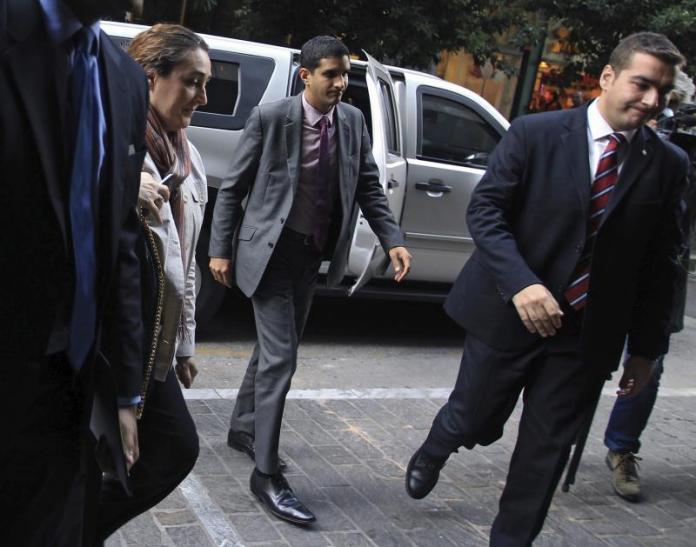Daleep Singh, the deputy national security adviser to US President, Joe Biden, began a tour of Colombia, Ecuador, and Panama on Monday to begin to shape a great infrastructure plan with which the United States wants to counteract the advance of China.
Singh arrived in Colombia last Sunday on a trip that will last thru this Thursday and in which he will meet with the Colombian president, Iván Duque, and Ecuadorian president, Guillermo Lasso, several Panamanian ministers, and with representatives of different sectors of the three countries.
The objective of his tour is to hear ideas to design an infrastructure project that Biden wants to launch as an alternative to the Chinese project “One Belt, One Road”, explained a senior US official in a telephone press conference with a small group of media.
Biden already convinced the rest of the G7 member countries (the seven most developed countries) in June to launch the initiative together with him, called “Build Back Better for the World,” which seeks to invest in infrastructure in developing countries in Latin America, the Caribbean, Africa and the Indo-Pacific.
The White House is still developing this initiative and plans to present it “at the beginning of next year,” according to the aforementioned official, who requested anonymity.
The planned approach
To draft the project, Biden’s advisers want to make a series of trips to “listen” to the priorities and problems of the countries that would benefit from the initiative, and they have chosen Latin America as their first stop because it is a continent that the president knows “intimately,” added the source.
“The idea is to offer a product that reflects our values, with high environmental and labor standards and with complete transparency in financial terms,” said the official.
During his visit, Singh will ask his hosts in the three countries how the United States can “help them solve their problems” regarding their infrastructure investment needs, and what has been their “experience” in investment agreements with other countries, like China.
“It is not about exerting pressure, but about offering a better product” than China, the official stressed.
During his visit to Colombia this Monday, Singh met with President Duque and “other members of the cabinet,” including representatives of the Ministry of Health to discuss vaccine production capacity, according to official sources.
He also met with representatives of private financial institutions that work in infrastructure, with union leaders and with environmental defenders.
On Tuesday, Singh will be in Ecuador, where he will meet with President Lasso and much of his government, as well as with representatives of the private sector and civil society.
The Ecuadorian ministers Singh will speak with will be Foreign Minister Mauricio Montalvo; the head of the Environment, Gustavo Manrique; that of Public Health, Ximena Garzón; that of Telecommunications, Vianna Maino; that of Energy, Juan Carlos Bermeo; and the National Secretary for Planning, Jairon Merchán.
Finally, Biden’s advisor will visit Panama on Wednesday and Thursday, where he will meet with the Minister of the Environment, Milciades Concepción; that of Private Investment, Jose Rojas; and that of Public Works, Rafael Sabonge; as well as with the authorities in charge of the Panama Canal and with businessmen.
The future US plan is expected to mobilize capital from the private sector to drive projects in four areas: climate, health security, digital technology and gender equality.


0 Comments